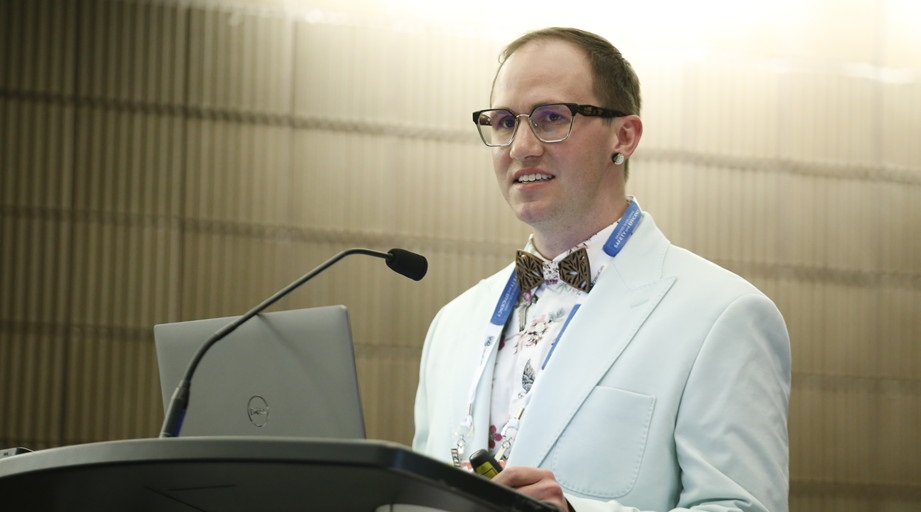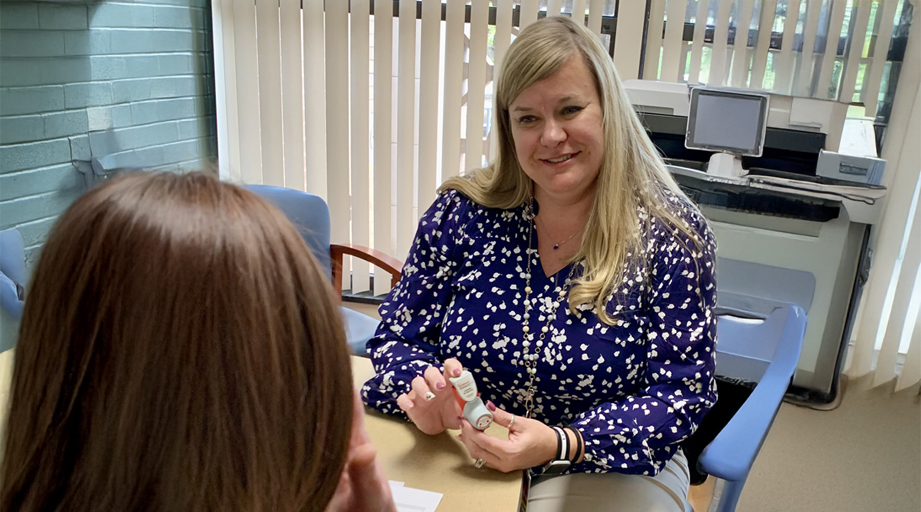
Maria was a 48-year-old advanced breast cancer patient who developed debilitating nausea from her intense chemotherapy regimen. She could no longer participate in daily activities, could not care for her children, and could not get out of bed. She began to feel hopeless.
Then Maria received pharmacogenomics testing that showed she was an ultra-rapid metabolizer of the cytochrome P450 2D6 isozyme — a finding that helped explain why ondansetron, the medication she took for chemotherapy-induced nausea, was ineffective, said Jill Bates, deputy executive director of the National Pharmacogenomics Program for the Department of Veteran Affairs. Maria needed an alternative medication.
“Maria’s story highlights a fundamental flaw in the one-size-fits all approach to healthcare,” Bates said at a Tuesday session of the 2024 Midyear Clinical Meeting & Exhibition. “Her experience is a reminder that even though standardized protocols aim to treat the disease, they often fail to consider individual patients’ unique biology and individual life circumstances.”
Bates joined three other presenters at the session Pharmacogenomics Clinical Gems: Advancing the Pharmacist’s Role in Personalized Medicine.
The session focused on how pharmacogenomics testing had helped them manage primary care patients’ drug-drug interactions and optimize medications for oncology and transplant patients on the basis of their genetic profiles. Pharmacogenomics, the presenters said, can provide invaluable information to guide treatment decisions. But it’s still a relatively new field, they said, and pharmacists may find they need to help champion such services at their institutions.
Other presenters included Sara Rogers, clinical assistant professor of pharmacy practice at Texas A&M University, who leads precision medicine implementation at Texas A&M Health; Adley Lemke, transplant pharmacist at the Mayo Clinic in Rochester, Minnesota; and Carolyn Oxencis, hematology/oncology specialist and a clinical associate professor at the Medical College of Wisconsin School of Pharmacy. The session was moderated by Nisha Patel, pharmacy manager for hematology/oncology and infusion services at Henry Ford Health.
Rogers helps run a pharmacogenomics research pilot project at a family care clinic in rural Texas. Most of the patients are on multiple medications — on average, around 17 — and were looking for help with polypharmacy management, including understanding their adverse drug reactions.
“We developed a tool that runs artificial intelligence algorithms to continually assess pharmacogenetic and pharmacokinetic inputs to better understand the interplay between drugs, genes, and other clinical factors,” Rogers said.
Lemke said the goal of the pharmacogenomic program at his institution is to use data to manage the care of solid organ transplant recipients. Those patients, who take an average of 19 medications, have a high number of comorbidities, allergies, and potential drug-drug interactions.
He said he introduces the concept in counseling with patients before they receive their transplant. “The counseling point I emphasize is, we’re looking for ways to predict what your body needs in terms of medicines so we can avoid side effects … and to make sure all the medications you take are effective for you,” said Lemke. “When taking that approach, I get a lot of enthusiasm from patients.”
Oxencis discussed how pharmacogenetics can work in oncology care. Testing for variations in the UGT1A1 gene, for instance, can indicate whether a patient may have severe adverse effects from taking irinotecan. The Clinical Pharmacogenetics Implementation Consortium provides adjusted dosing guides for such patients.
Part of the first cohort in the ASHP/University of Minnesota Pharmacogenomic Accelerator program, Oxencis urged attendees to become experts by reading and reaching out to successful programs. She also suggested pharmacists find “physician champions” to help move a project along. In her institution, she found supportive physicians in the heart and vascular service lines, so that’s where pharmacogenomics testing began.
As part of the program, she added, pharmacists operate under a clinical practice agreement. “The pharmacists are practicing at the top of their licenses and independently managing the pharmacogenomics consults, ordering the labs, scheduling the visits, making medication changes,” she said.
Presenters also discussed the recurring issue of who pays for pharmacogenomics panels, particularly when insurers refuse to cover testing.
Oxencis said her oncology department began preparing letters of medical necessity and appeals. “We’re never sure which payer will cover which type of testing. And they can change their minds. Staying on top of that is a team effort. It’s a very prevalent topic and often the first question for patients: How much will this cost?”







